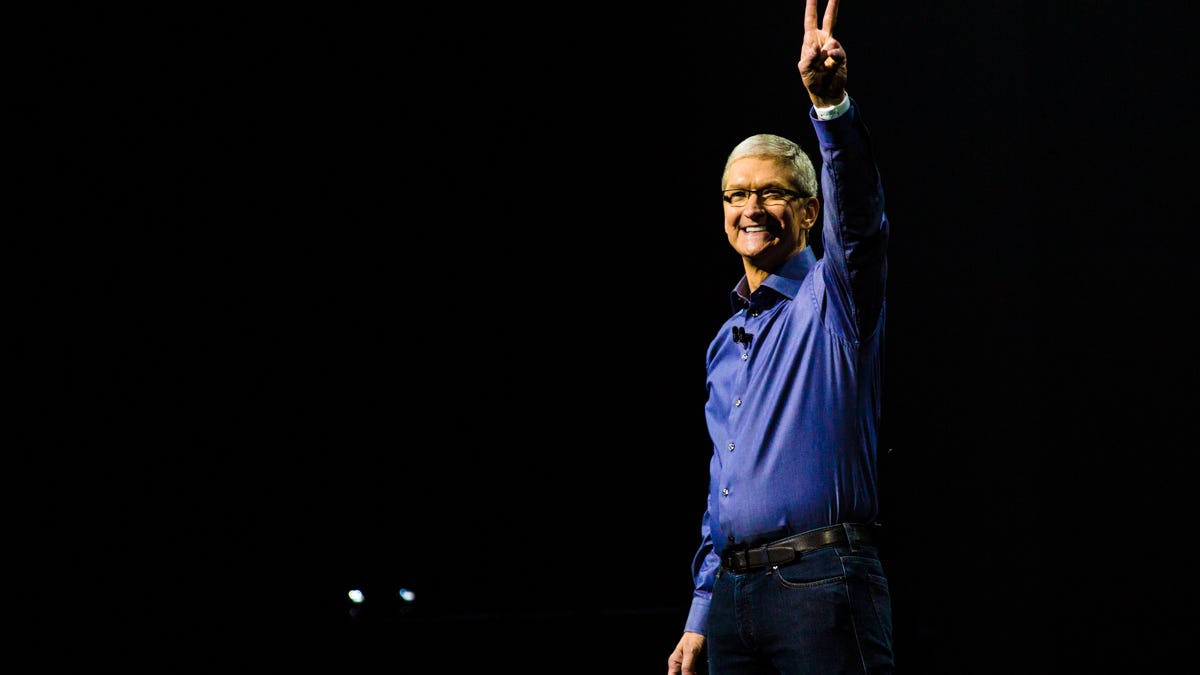Apple invests $1 billion in China's Uber competitor to 'learn more about the market'
The iPhone maker is a strong contender in the Chinese market, but has hit some road blocks in recent months.
How important is China to Apple? The company just invested $1 billion in Didi Chuxing, Uber's main rival in China, in part to better understand the country's market.
"We are making the investment for a number of strategic reasons, including a chance to learn more about certain segments of the China market," Apple CEO Tim Cook told Reuters. "Of course, we believe it will deliver a strong return for our invested capital over time as well."
Though Uber has tried to compete, Didi Chuxing, formerly known as Didi Kuaidi, dominates the ride-sharing industry in China. Worth around $25 billion, the company owns roughly 80 percent of the market in China. And it has partnered with Uber rival Lyft in the US, letting Chinese riders hail a Lyft car using the Didi app.
Meanwhile, Apple, which last year made a profit of $53 billion, is trying to bolster its position in the country, currently the world's biggest smartphone market.
"China is one of the most important markets in the world for Apple," Drexel Hamilton analyst Brian White said. The new partnership "represents an attractive investment, enhances the Apple ecosystem, opens up new opportunities for Apple Pay, offers the opportunities to learn more about the Chinese consumer, shows support for the country and provides Apple with a potential customer in the future for an 'Apple Car.'"
Many big tech companies, like Google and Samsung, operate venture arms that invest in startups, but Apple has been the exception. It tends to buy companies outright or simply partner with them instead of investing. And most of its acquisitions are small. The biggest in Apple's history was its $3.2 billion purchase of Beats, a headphone maker and streaming music provider, two years ago.
Ni Hao, China
Investing in Didi gives Apple a stronger foothold in the Chinese market.
The Cupertino, California, company has been expanding quickly in the region, with a 13 percent market share in 2015's fourth quarter, according to IDC Research. But it's also hit some roadblocks as of late, with the Chinese government last month shutting down Apple's iTunes movie and book services there after seven months of operation.
Also in April, Apple reported its first-ever drop in iPhone sales, driven in part by a 26 percent fall in sales in Greater China to $12.5 billion. China had been one of Apple's fastest growing markets, and the weakness there has been worrisome.
"Apple's investment in Didi highlights the need to work with Chinese players for Apple to strengthen its position in China," IHS Technology analyst Jack Kent said.
Apple didn't provide a comment about the Didi investment, but in Didi's press release Cook said the Chinese company "exemplifies the innovation taking place in the iOS developer community in China. We are extremely impressed by the business they've built and their excellent leadership team, and we look forward to supporting them as they grow."
Moving right along
Apple has been making moves into the auto industry for some time. The company's CarPlay software makes your iPhone talk to your automobile, letting you do things like get directions, make calls and listen to music from your car's built-in display. And the company has been experimenting with self-driving cars, with reports saying it could sell its own vehicle in 2019.
Apple's not the only company forming partnerships in the auto sector. General Motors recently dumped a bunch of money into Lyft, and while Uber has not yet taken on any industry suitors, other automakers aren't exactly discounting the growth of the sharing economy.
In fact, a number of automakers have started up car-sharing services of their own, which is similar to ride sharing, except a central authority retains ownership of the vehicles. BMW operates ReachNow in Seattle, GM has Maven, and Daimler's making waves with Car2Go.
Car sharing is still going through its teething phase. In response to a request for mandatory driver fingerprinting and expanded background checks, both Uber and Lyft have cancelled their services in downtown Austin, Texas. While the companies have been dealt blows in some markets, they continue to expand around the world.
Updated at 10 a.m. PT with additional background and analyst comments.






